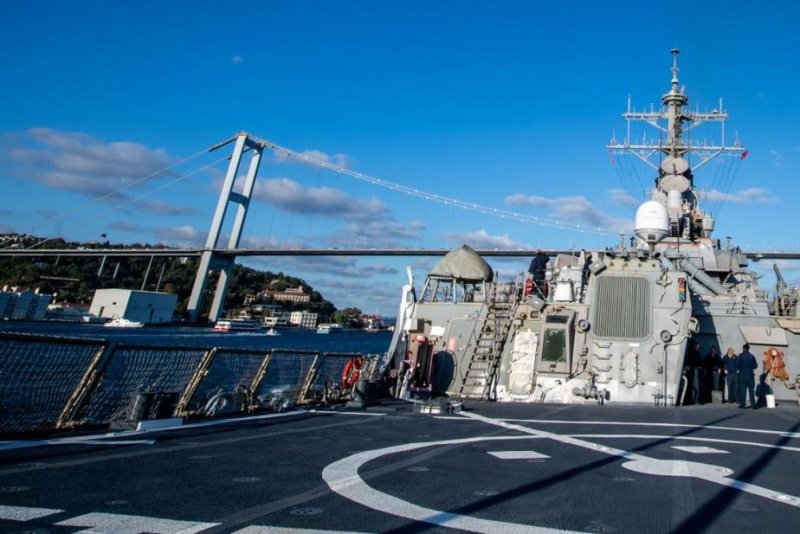The U.S. Navy's guided missile destroyer USS Porter transited the Bosporus Strait on Sunday before its arrival at the Black Sea port of Odessa, Ukraine. Photo by MCS3 T. Logan Keown/U.S. Navy
Oct. 14 (UPI) -- The U.S. Navy's guided missile destroyer USS Porter arrived in Odessa, Ukraine as a part of the 6th Fleet's Black Sea operations.
Its docking on Saturday was a scheduled port visit "as part of our continued Black sea presence and support to our region partners," a statement on Sunday by the 6th Fleet said.
It is one of four destroyer-class vessels in the fleet, and the seventh ship to enter the Black Sea, which adjoins seven European countries this year, notably Russia, this year. By treaty, U.S. and NATO-allied ships routinely pass into the sea through Turkish-held straits. A typical stay for U.S. vessels is about 125 days.
In July, the USS Carney participated in the Sea Breeze 2019 exercise, training with ships of other NATO countries. The USS Ross, USS Donald Cook and USS Fort McHenry each visited Black Sea ports and engaged in exercises with navies of countries adjoin the sea.
Earlier this month, Adm. James Foggo, chief of U.S. Naval Forces Europe, told USNI News he has observed numerous Russian warships in waters along Russia's western edge, including in the Black Sea.
He added that the 6th Fleet's destroyers, two fast transport ships and a command ship, available on a routine basis, are inadequate for keeping track of Russian maneuvers. He added that threats are present and growing.
"We clearly have enough forces in theater to maintain a pretty good balance of training and engagement with allies and partners in time of peace," Foggo said. "In time of crisis, we'll need more. So we train for times of crisis, and most of our exercises are crisis-response exercises, so I could use more presence in the Baltic, in the Mediterranean, in the North Atlantic, Arctic and the Black Sea."















